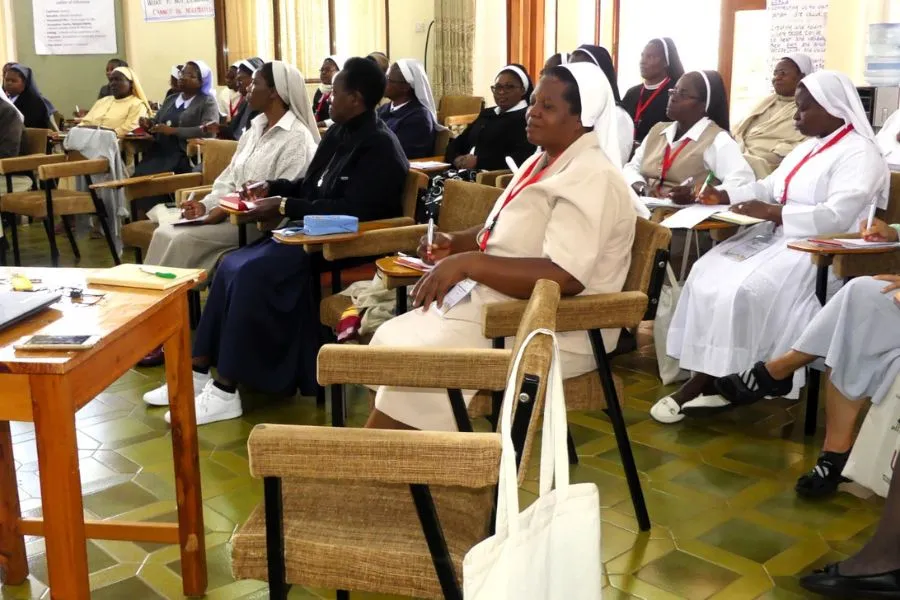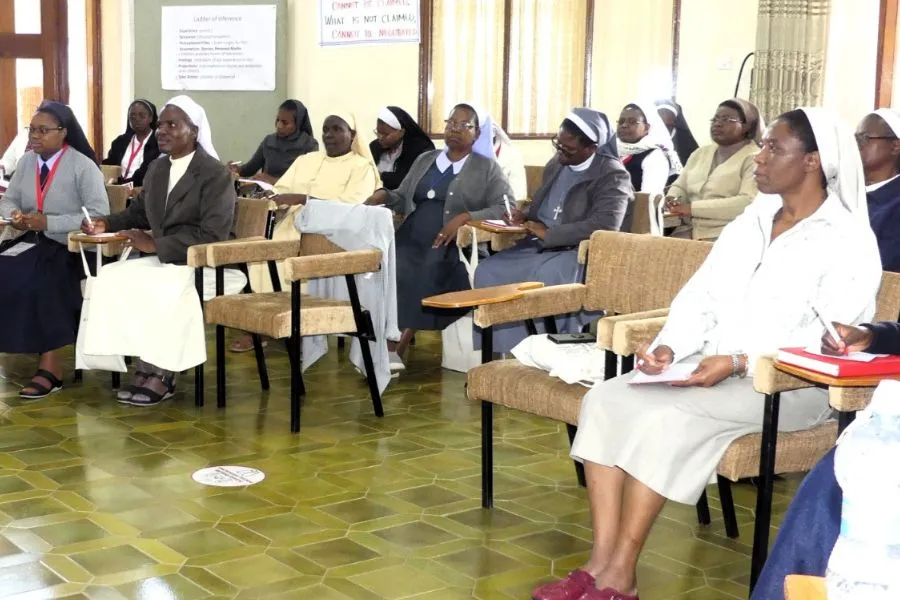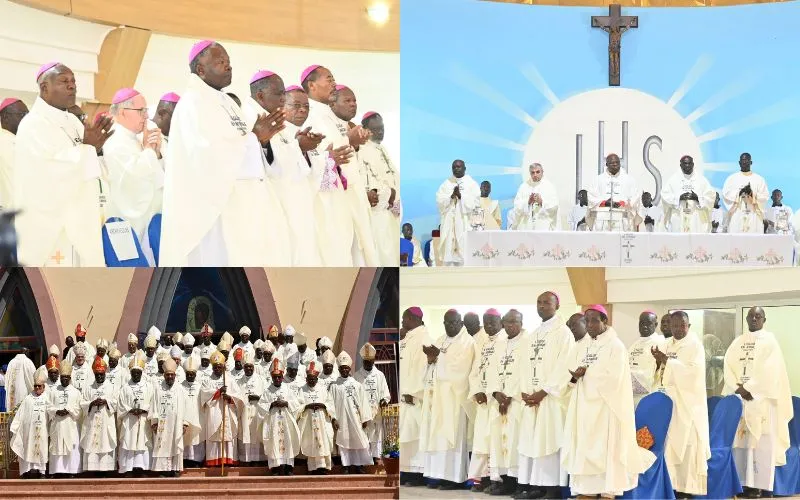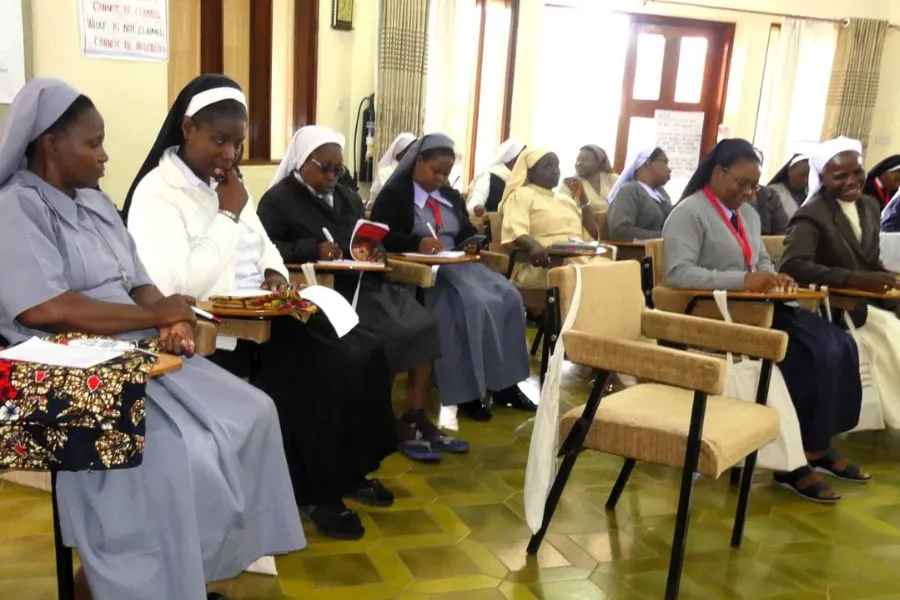Sr. Shibambu said that the workshop was about “deepening our understanding of who we are, and who I am as an African religious sister”.
“The workshop created awareness about the impact and role of primary socialization in our lives. It also helped us to interrogate the positive and negative things in our cultures that influence how we live out our religious life and how we can balance them,” said the member of the Sisters of Companions of St. Angela.
The South African Nun said that the sessions at the workshop enabled participants to know the factors that could brew conflicts in their communities.
She said that the workshop also enabled participants to come to terms with culture-based prejudices that had experienced. “This will help them transform the pain instead of transferring it to others in the community, thus making them healed healers instead of wounded healers.”
Sr. Therese Clementina Nyoni from Zambia who also participated in the workshop told ACI Africa during the interview that the event enabled them to learn to appreciate other cultures more.
(Story continues below)
The member of the Little Sisters of St. Francis pledged to apply knowledge from the workshop in her community, saying, “Our duty after leaving this place is to go and share the skills that we have learned here on interculturality with our colleagues in the communities.”
Sr. Priscilla Tembo from Malawi said that the workshop had initiated a process that “involves sharing our cultures; trusting and listening to each other, which in essence defines interculturality”.
 Credit: ACI Africa
Credit: ACI Africa
“The workshop has reminded us that every culture is important. What is important is for us to come together in the community, openly sharing and understanding each culture and finding a way in which we can live as a community,” said Sr. Tembo.
The member of the Carmelite Sisters of our Lady of Mt. Carmel asserted that implementing the knowledge that the Sisters had acquired at the workshop would help build African religious communities to effectively witness the gospel.
“We have learned that we need to create a dialogue in Congregations whereby everyone will share their culture and be listened to,” Sr. Elizabeth Mutegi from Kenya chipped in.
The member of the Franciscan Missionary Sisters of Assisi added, “This is very important in handling cultural perceptions that some cultures are very superior and others inferior.”
Silas Mwale Isenjia is a Kenyan journalist with a great zeal and interest for Catholic Church related communication. He holds a Bachelor’s Degree in Linguistics, Media and Communication from Moi University in Kenya. Silas has vast experience in the Media production industry. He currently works as a Journalist for ACI Africa.
 Credit: ACI Africa
Credit: ACI Africa




 Credit: ACI Africa
Credit: ACI Africa Credit: ACI Africa
Credit: ACI Africa


